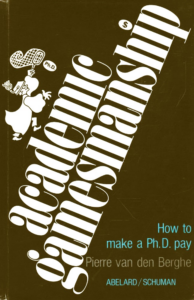I have a special-needs son and often have to watch him outside, as when we go for a walk together or drive around in my pickup (he loves to go for car rides). As a result, I’m often listening to books from Audible on my iPhone when I’m with my son.
These books can be quite interesting, so I sometimes discuss them with friends and colleagues. When I’m in the middle of listening to such a book, I often tell the person I’m speaking with that I’m “reading” such-and-such a book. But am I really reading it? Would it be more accurate to say the I’m listening to the book on my iPhone?
Accuracy is fine as far as it goes, but I’m no fan of scrupulous accuracy. So I don’t feel any compunction when I tell people I’m reading a book when I’m listening to it being read. That said, the distinction between going through a book by listening to it versus actually running one’s eyes over the text and extracting the information from it that way is interesting and one I’d like to explore in this article briefly.
In the Old Testament, there are numerous passages where the Law is read to people. Indeed, in ancient times, books were scarce, so if people were going to get the information in those books, it would generally need to be read to them.
We see a holdover of reading as an oral exercise at contemporary monasteries, which may restrict conversation during communal meals, but nevertheless assign a reader who reads to everyone while they are eating (the reader forgoing the meal and leaving a bookmark where the reading left off).
But even when others were absent, ancient reading seems to have been largely done out loud — when people did read, they would utter the words they were reading rather than saying them silently to oneself. Speed reading of the sort that eliminates subvocalization, to say nothing of prosody, thus seems to have been rare.
That reading was at least in part an oral exercise in the ancient world was brought home to me years ago when I read Augustine’s Confessions. In the Confessions, Augustine marvels at watching Ambrose reading silently without moving his lips:
“When he read,” said Augustine, “his eyes scanned the page and his heart sought out the meaning, but his voice was silent and his tongue was still. Anyone could approach him freely and guests were not commonly announced, so that often, when we came to visit him, we found him reading like this in silence, for he never read aloud.” (Book VI)
Clearly, Augustine was witnessing, in Ambrose’s reading, the exception rather than the rule, which was that when people read, they read out loud.
Still, the question remains how listening to a text being read differs from reading the text oneself. Children who are too young to read are nonetheless “read to.” Yet, when one is capable of reading and has a text read to him or her, can one legitimately say that one has read the text, or, if one wants to quibble about the information having gone directly to one’s ears rather than first through one’s eyes (or fingers, if one is reading Braille), can one at least say that one has done the equivalent to reading the text?
I would say whether listening is the same as (or even better than?) reading depends on the type of material being read and the concentration with which one is listening to the material.
As a mathematician, I could not in good conscience equate listening to a technical monograph to carefully reading it with paper and pencil in hand. How does one enunciate a mathematical formula? How does one describe in words a technical diagram? How does one characterize the operation of an algorithm? None of these seem readily amenable to listening or being read to.
On the other hand, non-technical writing such as biography or history seems readily listened to and comprehended. I would go even further and say that if one is listening to such writings with concentration, hitting the 15- or 30-second replay button to hear a passage again that one has missed, then one might even be doing better listening to rather than conventionally reading the text.
I sometimes like a book well enough that I will both listen to it and read it. I usually start by listening to it and then, if I really like it, will dip back into it to read it (or at least portions of it). Alternatively, I may reverse the order, start reading it, and then switch to listening to it.
I would say that this double exposure can be quite helpful at reinforcing the content of a book. But more than that, I’ve found that listening to a book can highlight aspects of it that I missed or didn’t retain by conventional sight-to-mind reading.
For instance, I was recently listening to David Graeber’s Debt, having started reading the print version six months earlier (I have yet to get through the entire book). In any case, upon listening to certain sections that struck me as particularly salient, I was surprised that they hadn’t stuck in my memory from my initial ordinary reading.
An article by Olga Khazan in Forbes a few years back asked “Is Listening to Audio Books Really the Same as Reading?” The article drew no firm conclusions, suggesting that type of material (genre) was relevant to which mode of information consumption proved more effective, but that listening and reading comprehension correlated strongly and that more research was needed.
In my case, the only research I’ve done is on myself, so any conclusions I draw will be based on anecdotal evidence. Still, others may find my observations useful. I started this article by noting that getting through books these days for me often entails a marriage of books downloaded from Audible and my iPhone. True enough. But I also have a longer experience of listening to books.
Back when the Sony Walkman went on sale in America in the early 1980s, I was one of its first adopters. I used to go on long walks (two hours plus) and listen at length to actor Alexander Scourby’s rendition of the King James Bible. To this day, I like his rendition of the Bible best, and passages in his voice still echo in my mind. Listening to him reading the Bible made parts of it stick with me in ways that conventional reading of it didn’t or couldn’t.
Another piece of anecdotal evidence: Before I started giving Audible lots of business, I would buy books on CD. I had long commutes (100 miles plus each way) teaching in Ft. Worth but living near Waco. I would only need to commute once or twice a week, but the rides were long and for a time I listened to books on CD, the experience of which was very similar to my Audible experience these days.
That said, somewhere around 2009 I bought a Kindle reader that had a text-to-speech feature. I liked the flexibility that this gave to being able to choose more books to listen to, many of them not available in CD or with Audible. Although there was a robot-like quality to the reading by the Kindle (Kindle’s text-to-speech feature was after all just a piece of software), I still found it easy to follow what was being read, especially if the material was interesting.
In fact, my experience with the Kindle’s text-to-speech feature has sparked my interest in computational linguistics and wondering to what extent such a feature can be improved and rendered more natural (or, alternatively, less robot-like). Indeed, I’m in touch with a software development firm about developing this capability.
The bottom line for me is that the experience of being read to has allowed me to make good use of many spare moments, and that the level of comprehension that I’ve been able to attain in this way has often been as good or even better than what I would have gained had I given the material a conventional reading.
I would therefore encourage people who want to get through the material in various books to try listening to them, compare the experience to ordinary reading, and draw their own conclusions about which method of “information extraction” works better with certain materials under a variety of learning conditions.
I regard myself as a fast study and can get through lots of material. But I also know that meaning simply doesn’t fly off a page for me. When I read, I need to concentrate, and it feels like effort to extract information. Listening for me therefore tends to be easier, more fun, and at the same time effective.
But contrast this with a grad student I once knew (before cell phones and text-while-you-drive) who would read books for pleasure while driving. Here’s what that looked like, though the person depicted here is not my grad student friend:
Of course I don’t recommend reading while driving — indeed, you’ll get a ticket if you try this and are caught. But this example points up that different people like to ingest information in different ways.
The thought I’d like to close with is what this all might mean for education. I’d like to suggest that educators consider putting less emphasis on reading per se and more on getting the information from reading into students, whether this means reading actively or listening actively by being read to.
If students really get excited about listening to certain books, it seems likely that they’ll also want to read them, or books that are similar. So reading and being read to could become complementary educational practices, mutually reinforcing each other.
In this regard, it seems that certain classic literature would be ideal for listening. Take poetry or the plays of William Shakespeare (the Arkangel production of Shakespeare is terrific). These might in fact be better taught and learned by being listened to, especially if the readers are highly accomplished speakers or actors.

